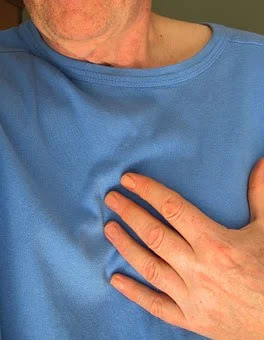20 Minutes: Pulse and Blood Pressure
Within half an hour of your last cigarette, your heart rate and blood pressure dropped to normal levels. That is a good thing, because high blood pressure is known as a “silent killer” with its often dangerous side effects. These include heart disease, stroke, blindness, and more. Fast-paced beats are hard on your heart. It can cause fatigue, dizziness, chest pain, and breathing problems.
8 Hours:
At the end of the work day, you have a fraction of the amount of nicotine and carbon monoxide in your blood. Why is that important? Carbon monoxide is a chemical in tobacco, and it suppresses oxygen in your blood. That causes problems from your muscles to your brain because they don't get the oxygen they need.
But as the chemical levels drop, your oxygen returns to normal.
On the flip side, you may already feel like wishing or doubting something at first. That is normal. But it usually lasts only 5-10 minutes. To pass it on, try to find ways to distract yourself until the feeling is over. You can try to make a desired playlist, chewing gum or drinking water.
12 Hours: Carbon Monoxide
If you smoke, you have 3 to 15 times more toxic chemicals in your blood than a non-smoker. At higher levels, you may experience headaches, rapid heartbeat, dizziness, or nausea. That range drops to normal less than a day after quitting. That opens up the amount of oxygen in your red cells that you need in your heart, brain, and other organs.
24 Hours: Heart Attack Risk
Smoking is a major cause of heart attacks. Your risk decreases after 1 day without smoking and continues to decrease after that. If you have already had a heart attack and smoked cigarettes, you reduce your chances of having another one.
48 Hours
The toxins in cigarette smoke kill the cells that help you taste and smell. Fortunately, these cells seem to grow faster when you stop smoking.
When two days are down, treat yourself to something fun. During this time, your sense of taste and smell become stronger as your senses begin to cool down.
Your body is also busy with cleansing. Your lungs release mucus and other barrels left over from cigarettes. And you have no other nicotine in your body.
This is also about the time when the most severe withdrawal symptoms appear. You may feel anxious, dizzy, hungry or tired. You may have a headache or feel lonely or depressed. It's normal, but it also makes it very difficult to keep it from bright.
Stick to your plan. Go to a movie or a store where you will not smoke. Rely on your support network, whether they are friends or family who benefit from you, an app, or a free call with a quit call, such as the National Cancer Institute (877-44 QUQ) line.
If you have asthma, your symptoms may get worse during this time. That may be confusing, but it is part of the process and will not last long. You will probably see improvement in day 3. You can talk to your doctor about how to keep your symptoms tested.
72 Hours: Bronchial Tubes
Cigarette smoke builds up in these channels as air enters and leaves your lungs. That can make it difficult to breathe. But it starts to get better after 72 hours after quitting as the tubes start to loosen up. You can see the boost in power, too.
2 to 12 Weeks: Blood Circulation
It should start to improve almost immediately, but after a few weeks or so you may notice significant improvements. You can begin to feel emotions easily, and your hands and feet will be warm again. Good circulation is linked to healthy blood pressure, heart rate, and blood oxygen levels.
1 to 9 months: Lung Function
This is where you can begin to feel more powerful. You will start to cough a little and breathe better. The tiny hairs on your lungs called cilia begin to grow back. This helps cleanse your lungs and reduce infection. Your lung function can increase by 10%.
1 year: Heart Health
You put yourself at risk of heart disease and heart attack by almost half of your smoker. There is nothing else you can do that has a profound effect on heart health.
2 to 5 Years: Cancer
Smoking increases the risk of certain cancers. You can help lower it again if you stop. After five years, your risk of cancer of the mouth, throat, stomach, and other cancers will be only half of what you had when you smoked. Your risk of cervical cancer will fall on the non-smoker.
5 Years: Stroke
Smoking accelerates the formation of blood clots that can lead to stroke. But within 5 years after quitting, the risk of stroke can be as high as that of a non-smoker.
10 Years: Lung Cancer
That's why it takes a long time to reduce the risk of your lung cancer to half that of a smoker. During this time, your risk of throat and pancreatic cancer also decreases.









Comments
Post a Comment